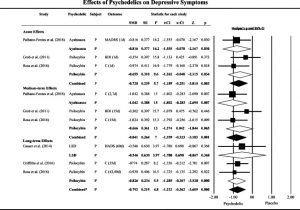Reduce Stress and Anxiety about Covid-19 with Mindfulness
By John M. de Castro, Ph.D.
“Even as states move forward with re-opening, the psychological consequences of coronavirus will be long-lasting. Mindfulness can be cultivated by anyone as one way to improve mental health amidst the uncertainty.” – Julie Dunn
Mindfulness training has been shown to improve health and well-being in healthy individuals. It has also been found to be effective for a large array of medical and psychiatric conditions, either stand-alone or in combination with more traditional therapies. The COVID-19 pandemic has challenged the mental and physical health of the population. It has created intense stress both for frontline workers but also for people simply isolating at home. Mindfulness is known to decrease the psychological and physical responses to stress. So, mindfulness training may be helpful in coping with the mental and physical challenges resulting from the stress produced by the COVID-19 pandemic.
In today’s Research News article “Trait mindfulness is negatively associated with distress related to COVID-19.” (See summary below or view the full text of the study at: https://www.ncbi.nlm.nih.gov/pmc/articles/PMC8062409/ ) Dillard and colleagues in their first study conducted during the Covid-19 pandemic, recruited healthy college students who had never been diagnosed with Covid-19 and had them complete measures of mindfulness, perceived stress, anxiety, worry about coronavirus, and their anticipated negative reactions to Covid-19 infection.
They found that the higher the levels of students’ mindfulness the lower the levels of perceived stress, anxiety, worry about coronavirus, and anticipated negative reactions to Covid-19 infection. These relationships were still significant even after accounting for the general health of the students.
In their second study conducted during the Covid-19 pandemic, they recruited healthy community adults aged between 25 and 73 years. They had them complete the same measures as in study 1, along with additional measures of depression and coping strategies. Similar to study 1, they found that the higher the levels of mindfulness the lower the levels of perceived stress, anxiety, worry about coronavirus, and anticipated negative reactions to Covid-19 infection and additionally, depression levels. These relationships were still significant even after accounting for the general health of the adults. They also found that the higher the levels of mindfulness the greater the use of positive coping strategies and the lower the use of negative coping strategies. Such as substance abuse and denial.
In many ways the present results replicate previous findings that mindfulness is associated with lower the levels of perceived stress, anxiety, depression, and worry and greater use of positive coping strategies, and better mental health during Covid-19. The present study finds these relationships between mindfulness and mental health specifically linked to Covid-19. They also suggest that mindfulness may produce better coping and this may be responsible for the better mental health.
The studies, however, were correlational and as such causation cannot be determined. Nevertheless, these findings suggest that mindfulness training may be helpful in producing better coping mechanisms to the stress of the pandemic, reducing the resultant mental health problems of both college students and older adults.
So, reduce stress and anxiety about Covid-19 with mindfulness.
“With COVID-19 front and center of nearly every aspect of life . . . under the surface, many people are grieving the loss of their former lives. “It’s not just the kind of grief you feel when a loved one dies—it’s grief created by so much uncertainty. We liked the way things were.” – Yale Medicine
CMCS – Center for Mindfulness and Contemplative Studies
This and other Contemplative Studies posts are a also available on Google+ https://plus.google.com/106784388191201299496/posts and on Twitter @MindfulResearch
Study Summary
Dillard, A. J., & Meier, B. P. (2021). Trait mindfulness is negatively associated with distress related to COVID-19. Personality and individual differences, 179, 110955. https://doi.org/10.1016/j.paid.2021.110955
Abstract
Research suggests that mindfulness is associated with psychological health including a healthier response to stressors.
Objective
This research tested associations between trait mindfulness and mental health factors related to the novel coronavirus (COVID-19).
Methods
Two studies (Study 1 N = 248 college students; Study 2 N = 300 U.S adults) assessed trait mindfulness, perceived stress and anxiety, worry about the coronavirus, and anticipated negative affect of a coronavirus diagnosis. Additionally, Study 2 assessed depressive symptoms and coping with the coronavirus.
Results
In both studies, findings indicated that individuals higher in trait mindfulness reported less stress and anxiety. Higher mindfulness in both studies was also associated with less worry about the virus and anticipating less negative affect if one gets the virus. In Study 2, trait mindfulness was negatively related to depression, and numerous associations between mindfulness and coping emerged, showing higher trait mindfulness was associated with healthier strategies in coping with coronavirus.
Conclusions
These data are consistent with research that has revealed that those who think and act more mindfully are less stressed and anxious. By revealing these associations with mindfulness in the context of a real-world, novel stressor, this research makes an important contribution to the literature.
https://www.ncbi.nlm.nih.gov/pmc/articles/PMC8062409/









